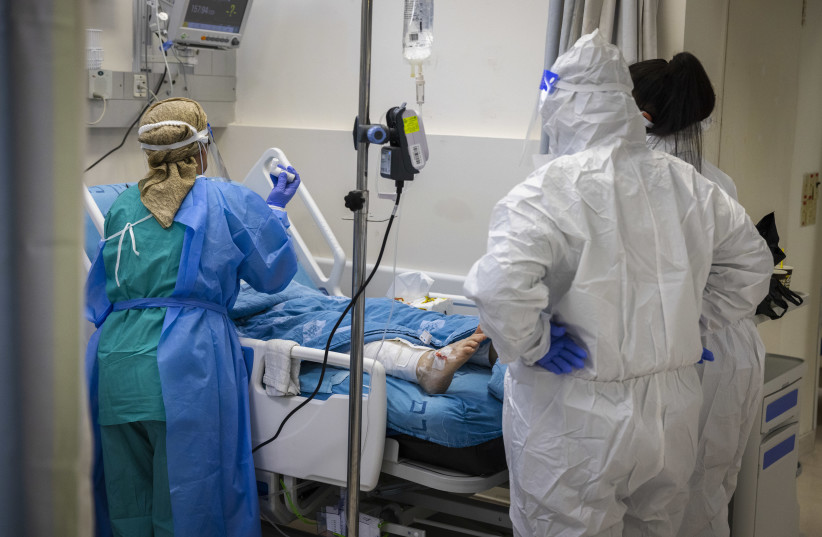Coping with the COVID-19 pandemic has proven to cause psychological harm not only among patients and families, but also to young hospital interns who treat people at the wards.
A unique study carried out at Tel Aviv Sourasky Medical Center looked at the effect of working in the complex and unique conditions of the coronavirus epidemic in the hospital. The study focused mainly on the intern population.
As part of their research, contact was made with all the first-year residents who worked Sourasky’s Ichilov Hospital in the first year of the pandemic from March 2020 to February 2021; a total of 145 interns participated in the study.
“These findings are alarming. They show the severity of the damage to the youngest population of doctors – those who should have the highest motivation to practice medicine."
Dr. Roy Sar-El, a psychiatrist at Sourasky who led the study.
The findings were alarming – 47% reported significantly stronger symptoms of depression or anxiety following their work in the corona wards, where many patients were seriously ill and many died, and these doctors also tended to develop symptoms of post-traumatic stress disorder (PTSD).

The article was published in the General Hospital Psychiatry journal under the title “The price of internship through COVID-19: First year physicians report substantial mental health symptoms during the pandemic.”
“In the current study, we made a special effort to reach every intern who worked during the COVID-19 pandemic [at] Sourasky and, indeed, were able to recruit most of them, about 75%,” said the researchers.
The researchers discovered that these interns also developed significant burnout symptoms despite the fact that this was their first year of work in the health system; the interns reported feelings of “emotional exhaustion” and feelings of detachment or depersonalization. About 11% of the interns reported that they tried to use cannabis or alcohol to survive the difficult period.
“These findings are alarming,” said Dr. Roy Sar-El, a psychiatrist at Sourasky who led the study. “They show the severity of the damage to the youngest population of doctors – those who should have the highest motivation to practice medicine. The findings require consideration by the captains of the health system, to protect these young doctors in times of crisis.” His psychiatric team included Doctors Yoel Angel, Gil Fire, Aviv Avni and Oren Tene.
Research methods
To examine the prevalence of mental health symptoms among interns working for the first time as physicians during the first year of COVID-19, they sent an online questionnaire to interns who had worked for at least two months during the critical period of confusion and high rate of disease and death.
“Medical interns, introduced for the first time as workers of healthcare systems, are in a unique position during the pandemic,” they wrote. “Serving many times as frontline caregivers while contemplating the future of their medical career, interns transition between theoretical studies in medical schools and practical work in hospitals. Interns are assigned to hospitals across the country, where they are required to rotate between departments of general internal medicine, emergency medicine, surgery, pediatrics and more, upon the completion of their medical studies and prior to receiving their medical license.”
In the special circumstances of the “first COVID year,” many of them were thrust into the midst of a global crisis caused by the pandemic.
“These harsh circumstances placed this well-defined group of early career physicians in a susceptible state, potentially prone to developing mental health issues, such as work-related burnout, anxiety and depression,” they wrote. “Moreover, during their internship, these soon-to-be residents are expected to explore and choose a medical field to specialize in, competing for limited resident physician positions. Although some studies examined mental effects of treating COVID-19 patients on early career physicians, to the best of our knowledge, no previous studies focused on the specific population of interns.”
The fact that these symptoms were even more prevalent among interns – and that internship is considered less demanding in terms of workload – is noteworthy, the team concluded.
